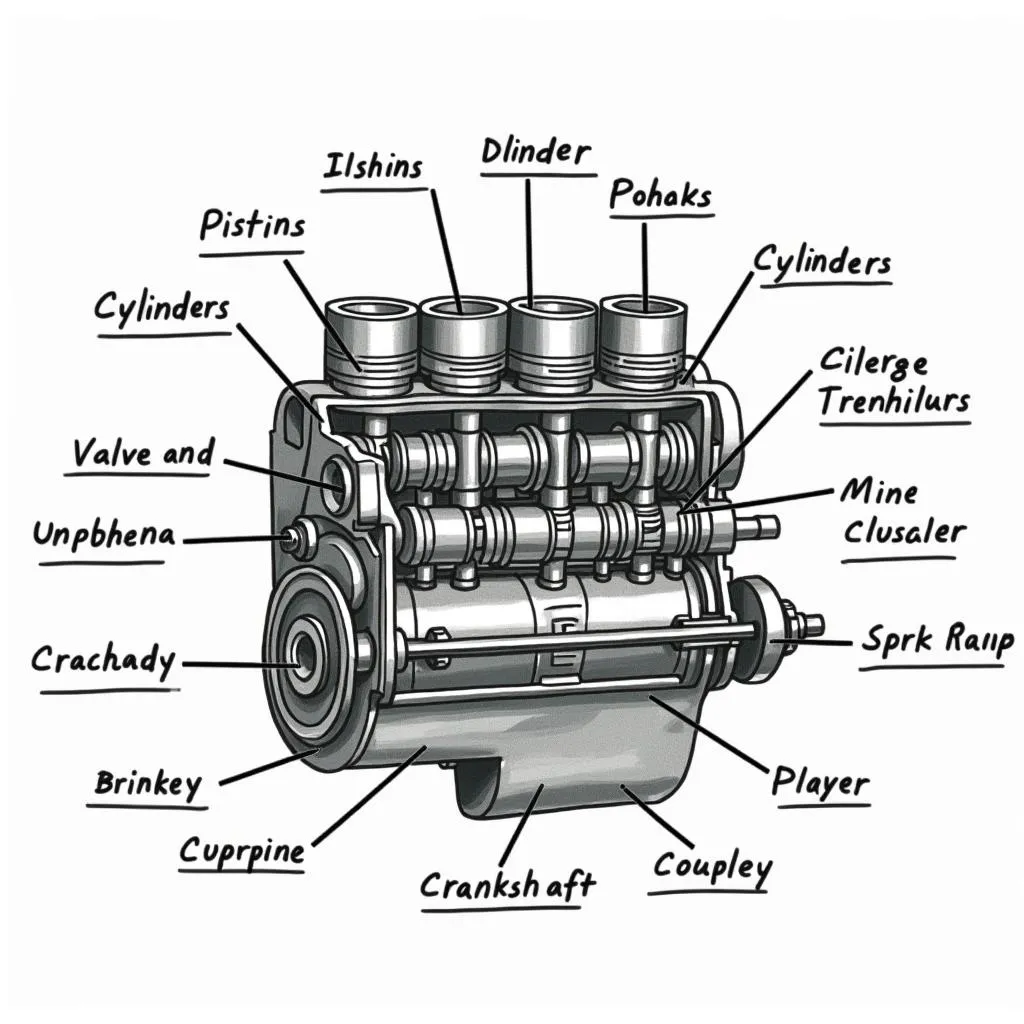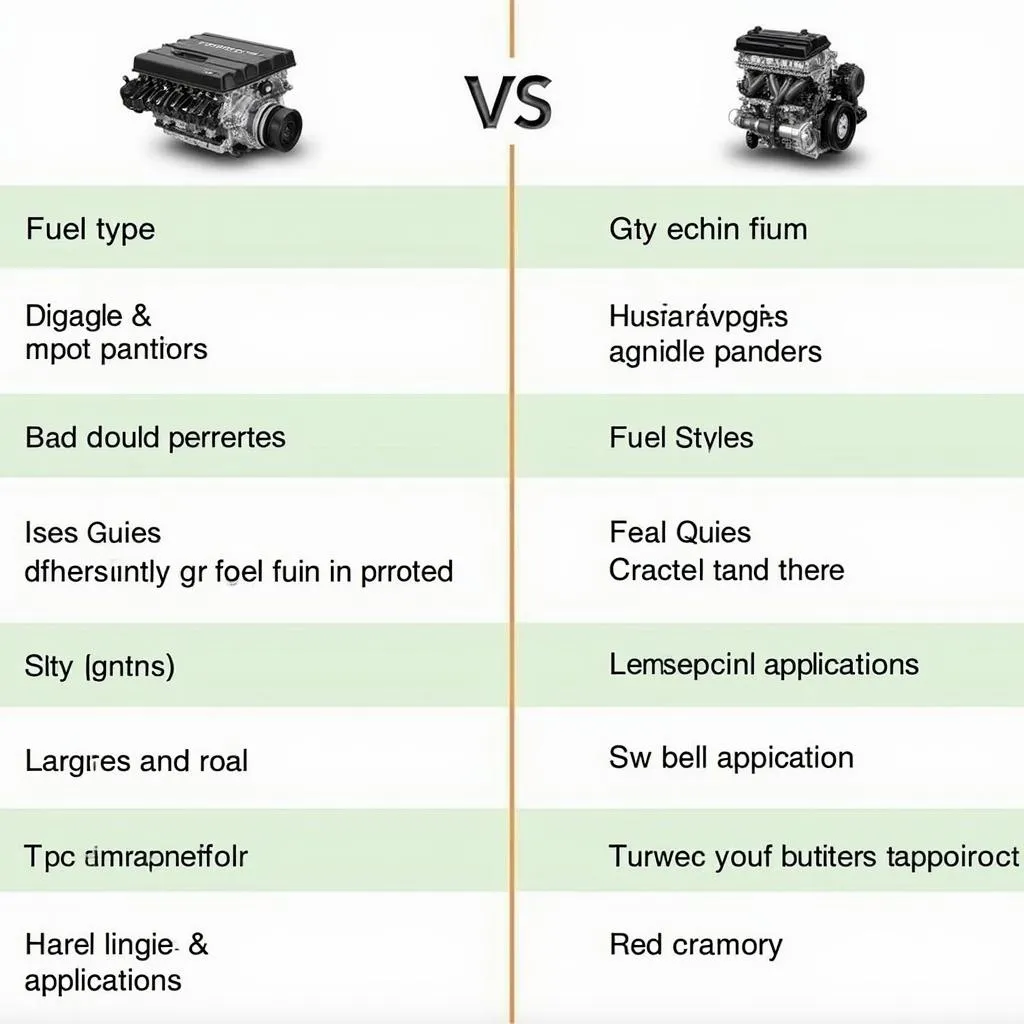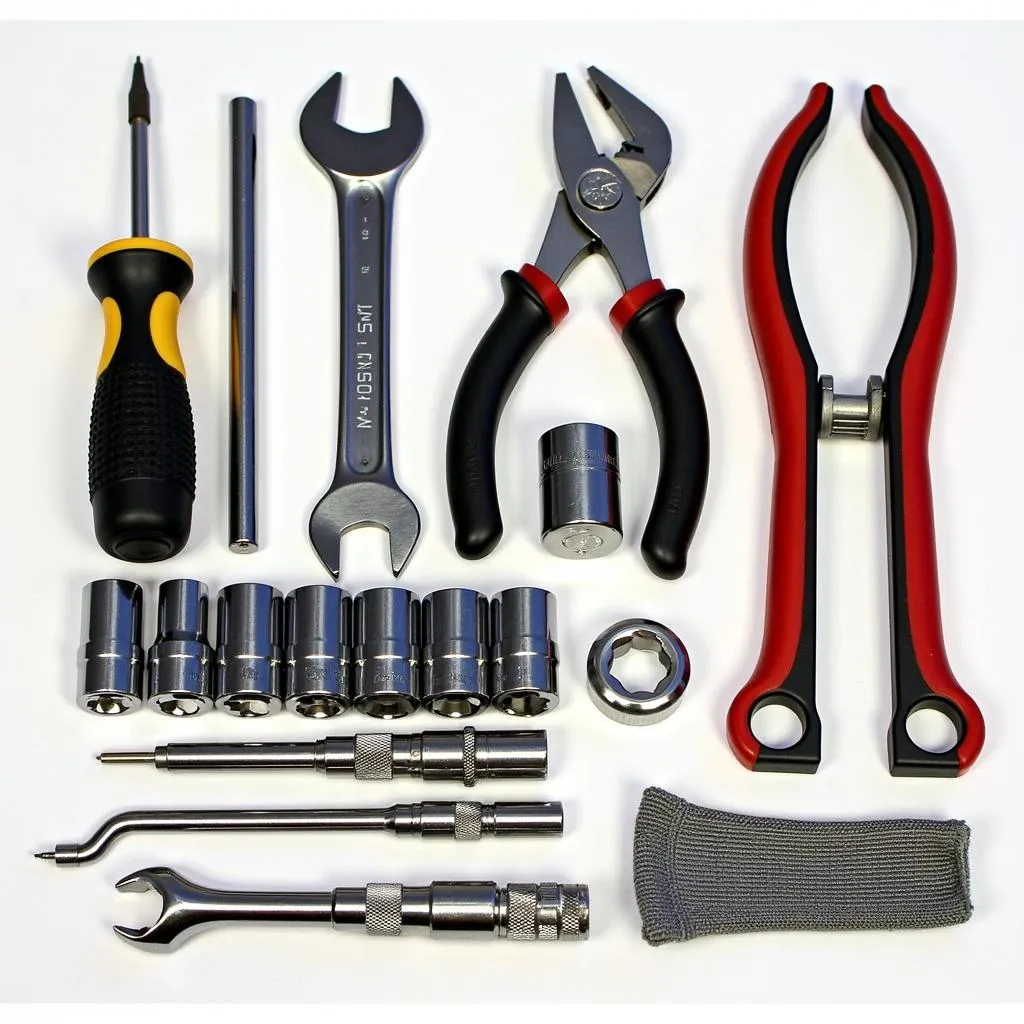The car engine is the heart of the vehicle, providing the necessary propulsion. It converts the chemical energy of fuel into mechanical energy, which in turn drives the wheels. But how does a car engine actually work? What are the most important components? And what problems can occur? In this article, we delve deep into the world of car engines.
 Diagram of a car engine's internal components
Diagram of a car engine's internal components
How a Combustion Engine Works
The majority of cars on our roads are powered by combustion engines. These are mostly four-stroke engines that burn the air-fuel mixture in four cycles to generate power.
- Intake Stroke: The piston moves down in the cylinder, drawing in the fuel-air mixture.
- Compression Stroke: The piston moves back up, compressing the mixture.
- Power Stroke: The spark plug generates a spark that ignites the mixture. The explosion pushes the piston down.
- Exhaust Stroke: The piston moves back up and pushes the exhaust gases out of the cylinder through the exhaust valve.
This cycle repeats many times per second, providing continuous drive to the vehicle.
Different Engine Types
In addition to the classic gasoline engine, there are other types of engines used in cars:
- Diesel Engine: Similar to the gasoline engine, but the fuel is ignited by high compression itself. Diesel engines are known for their high torque and efficiency.
- Electric Motor: An electric motor gets its energy from a battery and converts it directly into kinetic energy. Electric cars are quiet and emission-free, but often have a shorter range than vehicles with combustion engines.
- Hybrid Engine: Combines a combustion engine with an electric motor. This allows the advantages of both systems to be utilized.
The best type of engine depends on individual needs and the intended use of the vehicle.
 Comparison of gasoline and diesel engine diagrams showing their differences
Comparison of gasoline and diesel engine diagrams showing their differences
Common Car Engine Problems
A car is a complex structure, and the engine can also be affected by various problems. Some of the most common problems are:
- Engine won’t start: Possible causes include a dead battery, a faulty starter, or problems with the fuel supply.
- Engine jerks or stutters: Defective spark plugs, a dirty air filter, or problems with the injection system could be the cause here.
- Engine is losing oil: An oil leak can have various reasons, such as a defective seal or a crack in the engine block.
- Engine overheating: Possible causes include coolant loss, a defective thermostat, or a problem with the water pump.
If you have engine problems, you should always consult a professional. They can diagnose and fix the problem.
Engine Maintenance and Care
Regular maintenance and care are essential to extend the life of the engine and avoid costly repairs. This includes:
- Regular oil changes: The engine oil should be changed according to the manufacturer’s specifications.
- Replacing spark plugs: Defective spark plugs can lead to rough engine running and increased fuel consumption.
- Replacing air filter: A dirty air filter restricts the air supply to the engine and impairs combustion.
- Checking coolant: The coolant level should be checked regularly and topped up if necessary.
Further information on specific models such as the Mazda RX7 engine can be found on our website: https://carautorepair.site/motor-rx7-mazda/.
 Tools and equipment for car engine maintenance
Tools and equipment for car engine maintenance
Conclusion
The car engine is a fascinating piece of technology that ensures our mobility. Through regular maintenance and care, you can extend the life of the engine and avoid costly repairs. If you have problems, you should always consult a professional.
Do you have questions about car repair or need help with troubleshooting?
Visit our website autorepairaid.com and contact our experts. We offer professional support for all questions about your vehicle.

